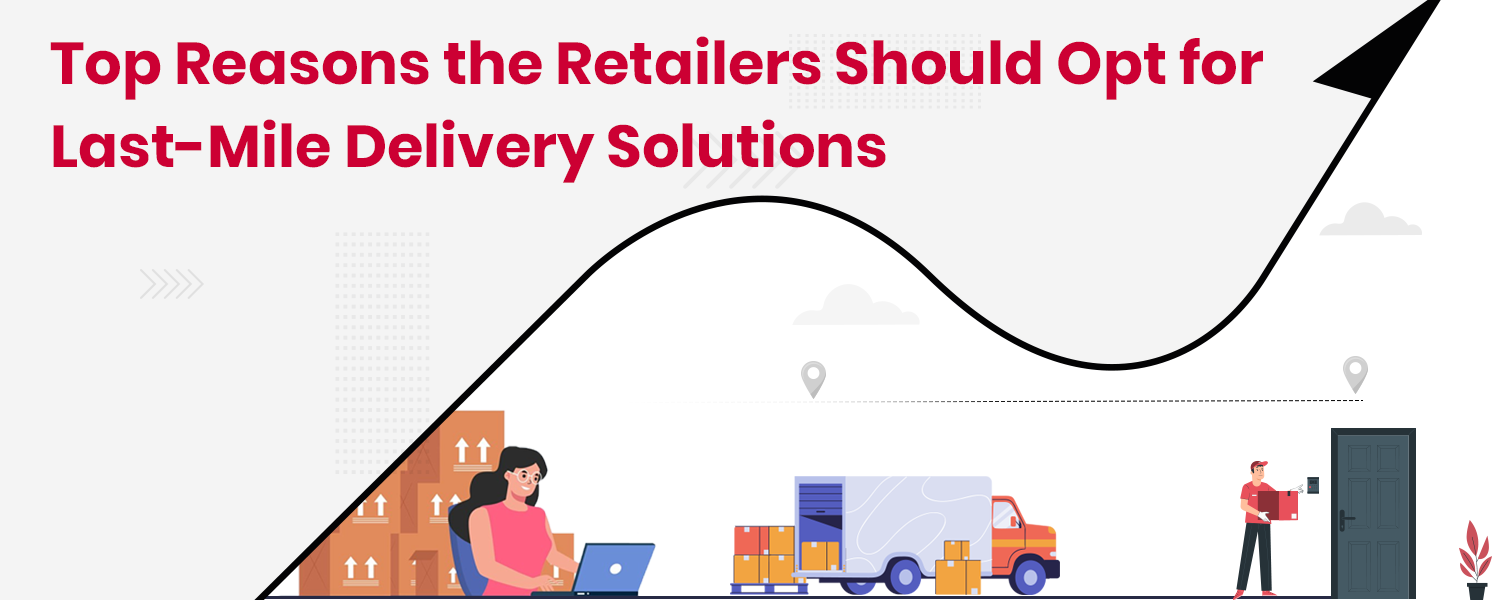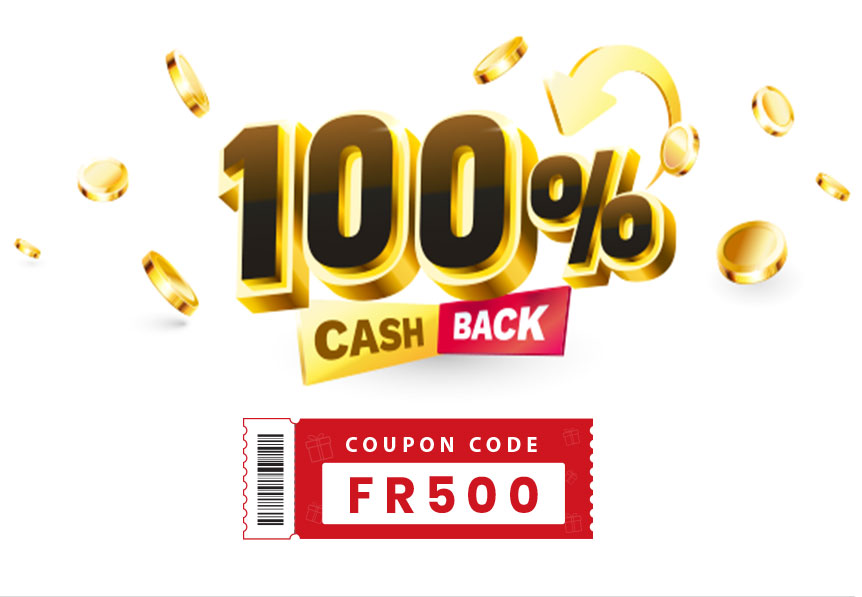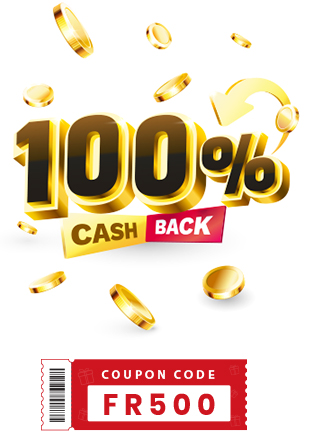According to a recent global report Indians are the world’s most impatient online shoppers, and nearly 38% of the shoppers expect their deliveries within 2 hours.
This clearly shows how important last-mile delivery is for retailers.
We Indians love fast deliveries. The moment of truth where customer satisfaction is truly won or lost. It is the last mile– where retailers face their toughest logistics challenges yet also find opportunities to differentiate themselves.
Last-mile deliveries are always the hardest because it is where 28% of total delivery costs are accrued. Yet, this final leg of the supply chain is crucial in customer satisfaction and retention. You can literally grab some extra bucks from customers for faster deliveries.
As an eCommerce business you should know how to opt for last-mile, and in the following sections of this blog, you’ll know why you should opt for last-mile delivery solutions.
Let’s jump straight into it!
Here Are 10 Reasons Why Retailers Should Opt for Last-Mile Delivery
Cost Efficiency
Last-mile delivery often constitutes a significant portion of overall shipping costs, sometimes accounting for up to 40% of total logistics expenditure. This high cost is due to the complexity involved in delivering products to the final destination, especially in urban areas with dense populations.
However, through strategic planning, route optimization, and leveraging omnichannel fulfillment centers, these solutions create more affordable delivery options. The integration of advanced technology not only enhances efficiency but also reduces the need for excessive manpower, further cutting costs. Thus, embracing last-mile delivery solutions is vital for retailers seeking a competitive edge through cost-efficient logistics.
Meeting Demand
With customers expecting rapid, often same-day delivery, traditional logistics systems struggle to keep pace. Last-mile delivery provides a decisive answer to this challenge. These solutions allow retailers to scale their delivery services efficiently by incorporating intelligent route planning and adaptable scheduling.
They transform the challenge of growing demand into an opportunity to excel in customer satisfaction. In essence, opting for last-mile delivery is no longer a choice but a necessity for retailers who wish to stay ahead in the fast-paced online retail landscape.
Leveraging Unused Physical Retail Space
The evolution of online shopping has led to a surplus of physical retail spaces, many of which lie underutilized. The ingenuity of converting these stores into Micro Fulfillment Centers (MFCs) has emerged as a transformative approach to optimize this space.
MFCs act as strategic hubs, located closer to customers, thus shortening the last-mile journey. Integrating last-mile delivery solutions into this framework ensures the efficient management of these centres, harmonizing inventory, orders, and delivery schedules.
It’s not just a cost-saving measure; it’s a strategic realignment that puts retailers at the forefront of innovation and customer convenience.
Automation and Technological Advancement
eCommerce, with expanding order volumes and escalating customer expectations, the role of automation and technological advancement has never been more crucial.
Last-mile delivery, the final and often most complex step in the shipping process, requires precision, speed, and adaptability. Automating this stage empowers retailers to process large order volumes without a proportional increase in errors or delays.
Technological advancements in AI, route optimization, and real-time tracking refine last-mile logistics, making it a well-coordinated, predictable process. By embracing automation, retailers are not just keeping pace with modern demands but setting a new standard for efficiency, accuracy, and customer satisfaction.
On-Demand and Scheduled Delivery
Customer preferences are as diverse as the products they purchase. That’s why flexibility in delivery options is essential. The ability to manage both on-demand and scheduled routes is not just a service offering but a competitive advantage.
On-demand delivery answers the call for immediacy, satisfying the customer’s urgent needs. Scheduled delivery, on the other hand, offers predictability, allowing customers to plan their day around a predetermined delivery window.
Last-mile solutions facilitate this dual approach by optimizing route planning and balancing speed and efficiency without compromising.
Driver and Fleet Efficiency
The efficiency of drivers and fleets is a cornerstone in the seamless execution of last-mile delivery. The ripple effects of a single delay can have substantial consequences, affecting delivery times, customer satisfaction, and trust.
In order to tackle the obstacles of last-mile delivery, solutions that focus on route optimization and performance monitoring are crucial. These solutions can streamline the network of drivers and vehicles, resulting in a highly efficient system. By guiding drivers through the most effective paths, they can avoid traffic and obstacles while minimizing downtime and reducing operational costs for the entire fleet.
Enhanced Customer Experience
Consumers crave transparency, communication, and convenience in today’s digital age. Last-mile delivery solutions cater to these expectations by providing real-time updates, notifications, and flexible delivery options.
Customers are no longer left in the dark, anxiously wondering when their package will arrive. Instead, they are empowered with knowledge, receiving constant updates that foster trust and satisfaction. Moreover, these solutions often offer opportunities for customers to reschedule or reroute deliveries, making the process adaptable to their needs.
Flexibility in Delivery Options
In a consumer-driven market, the freedom to choose has become paramount. This choice extends beyond selecting products to include how and when those products are delivered. The last-mile delivery equips retailers with the flexibility to provide various delivery options that cater to customers’ individual preferences and schedules. Whether it’s same-day delivery, specific time slots, weekend deliveries, or click-and-collect, the modern consumer demands a bespoke service. Last-mile is not just about meeting these demands but doing so efficiently and economically.
Preparedness for Future Demands
The future of retail is rapidly transforming, with innovations such as autonomous vehicles, drones, and alternative fulfilment locations just around the corner. To remain competitive and relevant in this landscape, retailers must ensure their last-mile delivery solutions are not just catering to the present needs but are primed for future demands. This goes beyond merely reacting to technological advancements; it involves strategies like white glove last-mile delivery and proactively integrating flexible, scalable, and innovative systems.
Competitive Advantage
The fight for customer attention and loyalty is fierce, and retailers must look beyond pricing and product variety to stand out. One such avenue is through a robust last-mile delivery. Unlike other aspects of the business, last-mile delivery directly connects the retailer to the customer, serving as the final touchpoint of a transaction. A seamless, efficient, and responsive delivery service can transform this touchpoint into a memorable experience. By leveraging advanced technologies, optimized routing, and personalized communication, last-mile delivery can become a powerful tool for enhancing brand loyalty and customer retention.
Conclusion
In an era where convenience is king and customer expectations are perpetually on the rise, last-mile delivery is an essential strategy for every forward-thinking retailer. But for a robust last-mile delivery, you need a robust logistics infrastructure, which small or medium retailers may not have. Here, an experienced third-party logistics provider is the most viable solution for a business like yours. Also, you can get help from logistics aggregators like NimbusPost to choose the best and most cost-effective 3PL company
Make a choice now to embrace this vital link in your supply chain because your future customer is waiting, and with the right last-mile approach, you’re always right on time.
FAQs
What is last-mile delivery in the retail industry?
Last-mile delivery refers to the final step of the delivery process, where a product is transported from a local distribution center to the customer’s doorstep. It’s a critical aspect of the supply chain, focusing on delivering items efficiently and promptly. By adopting last-mile delivery, retailers meet growing consumer demands for flexible and timely deliveries, gaining a competitive edge in the market.
What are examples of last-mile delivery?
One example of last-mile delivery is Amazon’s Prime Now service, which offers rapid delivery within a few hours of ordering. This service epitomizes the last-mile delivery concept by utilizing localized distribution centres and dedicated delivery personnel to ensure that the products reach customers’ doorsteps quickly and accurately, meeting the growing demand for instant gratification in the eCommerce space.
What are the KPIs in last-mile delivery?
Key Performance Indicators (KPIs) in last-mile delivery measure the efficiency and effectiveness of the delivery process. Some essential KPIs include delivery time accuracy, tracking the on-time delivery rate, measuring customer satisfaction through feedback, monitoring the rate of successful first-time deliveries, calculating the cost per delivery, and analyzing the utilization and efficiency of delivery vehicles and drivers. These KPIs help businesses evaluate their last-mile performance and make necessary improvements, ensuring timely and satisfactory delivery experiences for their customers.
What is the last-mile delivery strategy?
Some key strategies include:
- Using technology to calculate the most efficient paths, considering traffic and distance.
- Utilize local storage to minimize travel distance.
- Provide customers with live updates on delivery status.
- Partnering with local delivery services to expedite delivery.
- Using automated systems to handle large order volumes.




